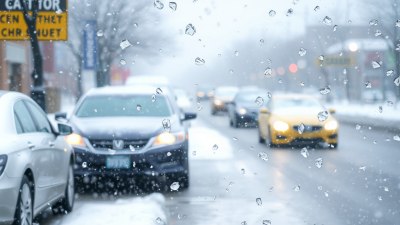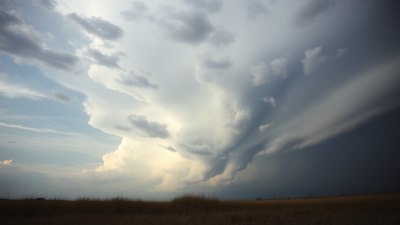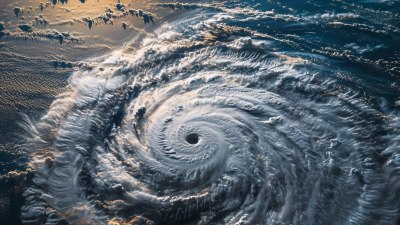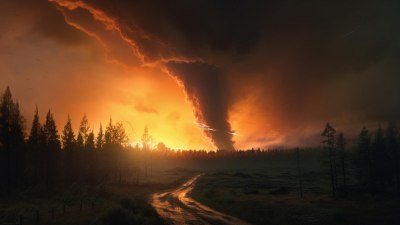Why Do Weather Warnings Sound So Dramatic
“Life-threatening storm.” “Extreme danger.” “Catastrophic flooding.” Are weather warnings really that serious, or are they just designed to scare us?

Photo via Canva.com/AI Generated Image
Turn on the news during a storm, and you’ll hear phrases like “deadly blizzard,” “crippling hurricane,” or “severe risk to life and property.” Even a routine thunderstorm warning can sound like an apocalyptic event. But why do weather warnings always seem so intense? Is it just media hype, or is there a real reason for the dramatic language? The answer is a mix of science, psychology, and, yes, a little bit of necessary fear.
People Tend to Ignore Mild Warnings
One of the biggest challenges meteorologists face is getting people to take weather warnings seriously. Studies have shown that when warnings are too vague or mild, people tend to ignore them. If a forecast says, “heavy rain expected,” most people won’t change their plans. But if they hear “life-threatening flash floods possible,” they’re more likely to take action.
Since many severe weather events develop quickly, officials use strong language to make sure people react immediately. A dramatic warning isn’t just about grabbing attention—it’s about saving lives.
There’s a Fine Line Between Urgency and Panic
Weather warnings are carefully worded to be urgent without causing mass panic. The goal is to make people take action, not freeze in fear. That’s why you’ll hear terms like “take shelter immediately” instead of “run for your life.” Meteorologists follow strict guidelines from agencies like the National Weather Service to ensure that warnings are clear, direct, and effective.
However, some media outlets take things further, using words like “storm of the century” or “record-breaking devastation” to attract viewers. While the warnings themselves are based on science, the way they’re presented can sometimes feel more dramatic than necessary.
Weather Terms Are Designed to Sound Serious
Some weather phrases sound over-the-top, but they actually have specific meanings. For example:
- “Bomb Cyclone” – Sounds like a movie title, but it’s a real meteorological term for a rapidly intensifying storm.
- “Polar Vortex” – Not an actual vortex, but a common term for extremely cold air moving south from the Arctic.
- “Derecho” – A rare, fast-moving windstorm that can cause widespread damage.
- “Catastrophic” or “Historic” Flooding – Used when flooding is expected to break records and cause severe damage.
These terms may sound dramatic, but they help distinguish between everyday weather and truly dangerous events.
False Alarms vs. Real Threats
One downside of dramatic weather warnings is that if a predicted storm doesn’t hit as hard as expected, people may start to tune them out. This is known as “warning fatigue.” If someone evacuates for a hurricane that turns out to be mild, they might ignore the next warning—even if that one is deadly.
Meteorologists constantly refine their forecasts to avoid unnecessary panic while still keeping people safe. The challenge is balancing accuracy with urgency.
Dramatic, But Necessary
Weather warnings sound intense because they need to be. They’re designed to cut through daily distractions and make people take action when necessary. While media outlets sometimes add extra drama for ratings, the core warnings themselves are based on science and public safety.
So the next time you hear a storm described as “historic” or “catastrophic,” don’t assume it’s just hype. It might just be the warning that keeps you safe.











